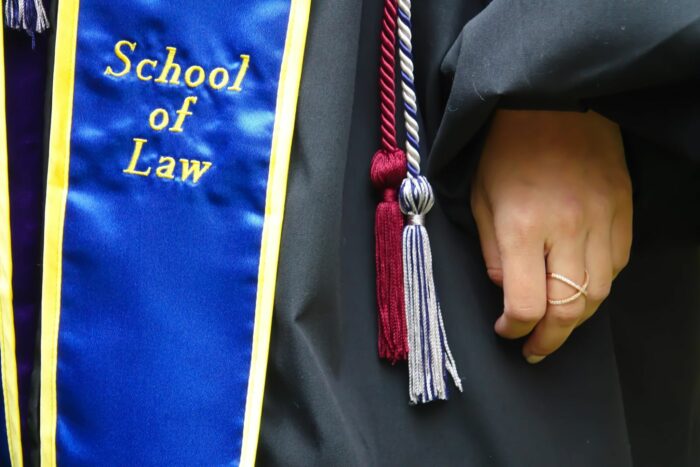Can You Get Into Law School with a 3.0 GPA in Canada?
Last Updated on June 4, 2024 by NAMS Editor
Getting accepted into law school is a challenging endeavor that requires strong academic performance. While most law schools in Canada set a minimum grade point average (GPA) requirement of 3.0 or higher on a 4.0 scale, having a GPA at or just above the cutoff does not guarantee admission. However, applicants who can demonstrate exceptional strengths in other areas can still gain entry into law school with a 3.0 GPA through strategic application tactics and well-rounded profiles. In this comprehensive guide, we will explore law schools’ GPA requirements and admissions criteria across Canada, provide tips for strengthening your application with a 3.0 GPA, and share real success stories to inspire hope. By thoroughly understanding the law school admissions process, you can make an informed decision about your path forward and maximize your chances of acceptance.
Understanding GPA Requirements in Canada
To apply your skills and knowledge effectively as a legal professional, law schools seek candidates who have proven their academic abilities through strong undergraduate performance. As such, GPA is one of the most important indicators of an applicant’s potential for success in law studies on application forms. Let’s take a closer look at the stated GPA cutoffs at some major Canadian law schools:
- University of Toronto (U of T): Minimum 3.3 GPA in final year courses and 3.2 GPA overall.
- University of British Columbia (UBC): Minimum 3.0 GPA in final two years of study.
- McGill University: Minimum 3.2 GPA overall.
- University of Ottawa: Minimum 3.0 GPA overall but 3.3 GPA in best two full years of study is recommended.
- Dalhousie University: Minimum 3.0 GPA overall, but a 3.2 GPA or higher is preferred.
- University of Saskatchewan: Minimum 70% average in the last two years, typically requires a 3.0 GPA.
While these schools provide a 3.0 GPA as the minimum cutoff, statistics show applicants with GPAs below 3.3 are less competitive on average. Aiming higher than the minimum is advisable through strategic course selection and time management to maximize your chances.
Factors Considered Beyond GPA
It’s important to understand that law school admissions committees consider the whole application holistically rather than focusing solely on GPA. Of equal or greater importance are factors like:
- LSAT score: The Law School Admission Test examines critical thinking and legal reasoning skills independently of past academic performance. Scoring above the school’s average can offset a lower GPA.
- Reference letters: Strong letters from professors illustrating your character, work ethic, and intellectual abilities carry substantial weight. Choose referees who can speak highly of you.
- Personal statement: A well-written statement showing passion for the law and unique experiences that prepared you for legal studies helps humanize your profile beyond numbers.
- Extracurricular involvement: Leadership roles in student government, volunteering, clubs, or sports demonstrate time management skills and commitment beyond academics.
- Work or research experience: Paid or unpaid legal internships, jobs, or independent research projects related to the law are highly valued.
- Special considerations: Factors like improvement trends, challenging life circumstances, disabilities accommodated, and cultural or socioeconomic background may be taken into account at the school’s discretion if explained.
Strengthening these supplementary factors is key for applicants with a GPA at or below minimum standards to remain competitive in the admissions process.
Tips for bolstering a 3.0 GPA application
If your GPA sits right at the 3.0 cutoff, here are some strategies proven to boost your chances of acceptance:
Polish your personal statement: Thoughtfully answering the “Why law?” prompt to sell your qualifications, experiences and fit for legal studies can compensate for a lower GPA.
Shine on the LSAT: A score well above the school’s median can offset academic performance concerns from your undergraduate record. Prepare diligently.
Choose strong references: Approach professors who know your abilities and work ethic after building rapport over multiple courses or outside class interactions.
Emphasize improvement: Admission committees like to see upward GPA trends over time that suggest stronger future potential, so focus on your most recent years.
Highlight related experience: Legal internships, roles in pre-law societies, published research, or work give added context to your candidacy beyond academics.
Consider a postgraduate degree: Earning a master’s demonstrates advanced academic skills and allows time to strengthen your application portfolio through new experiences and letters of reference.
Research school-specific factors: Some consider career breaks, disability accommodations, socioeconomic factors, or program fit more than others – play up what each prioritizes.
Following these best practices can help offset concern over a lower cumulative GPA by presenting well-rounded strengths that appeal to admission committees. With a strategic application process, a determined applicant can absolutely land an offer.
Success stories with 3.0 GPAs
While admissions remain competitive, there are certainly students who have achieved their goal of law school entrance despite facing academic challenges reflected in a 3.0 GPA or lower. Here are a few inspiring examples:
Dana completed her political science degree while working part-time and helping care for her younger siblings. Her GPA was 2.9, but she aced the LSAT, gained legal research experience, and conveyed deep commitment in her personal statement. She was accepted at Dalhousie Law.
Jasmeet struggled with anxiety and depression early in her psychology undergraduate career, bringing her GPA down to 2.8 at one point. After treatment allowed her to excel in later years, bringing her average up to 3.0, plus strong extracurricular leadership, she was admitted to UBC Law.
Chris decided to pursue law after several years of working as a paralegal. While his history degree GPA was 2.8, he obtained a Master of Laws degree with high grades and gained extensive legal experience in the workplace. McGill Law appreciated his mature candidacy.
These real-life examples prove admission is still achievable with strategic application measures supporting a lower academic record. Following the tips discussed, applicants facing similar challenges can also hope to craft a compelling profile appealing to selection committees.
Wrapping up
Getting accepted into law school in Canada is possible, even with a GPA slightly lower than the minimum standard, such as a 3.0. However, it requires diligently addressing weaknesses through strong supplementary application components highlighting experience, character, and fit for legal education. With targeted preparation compensating for academic indicators, a complete picture presenting well-rounded qualifications can still convince admissions committees to take a chance. For motivated individuals, opportunities exist – the key is understanding requirements thoroughly and making the most of every application element within one’s control. By optimizing recommendations, experiences, test scores, and written statements, achieving your dream of a legal career starts with the first step of acceptance. Work hard and stay determined.



